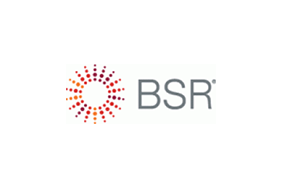New BSR Report: Companies Roll up Their Sleeves on Ecosystem Services
Published 05-02-12
Submitted by BSR
With an increasing number of companies and public agencies evaluating their impacts on ecosystem services—the flows from natural systems that provide raw materials for business—BSR’s new report outlines trends and emerging activities to help companies understand why and where they can begin to integrate this concept into their strategic decisions.
“Based on our tracking of this issue across academic, NGO, and public and private sectors since 2007, it is clear that the concept of ecosystem services has finally come of age,” said Linda Hwang, BSR’s Research Manager and co-lead of BSR’s Ecosystem Services Working Group.
Business exploration of ecosystem services is occurring because of questions from government agencies, scrutiny from investors, and a desire by companies to maintain a leadership position within their sector. BSR’s interviews with corporate managers—the first in-depth, corporate interviews ever conducted on ecosystem services—revealed that companies are exploring the importance of this concept as never before. More specifically, executives from the oil and gas, mining, chemicals, entertainment, and tourism industries believe an ecosystem services perspective offers new insights that existing approaches to managing environmental and social impact do not address.
BSR’s report, “The Quiet (R)Evolution in Expectations of Corporate Environmental Performance,” shows that companies are applying ecosystem services concepts using two approaches:
- Decision-making approach: Risks and dependencies on ecosystem services are incorporated into processes tied to corporate strategy, corporate finance, supply chain and real estate management, and product-lifecycle assessments.
- Business-activities approach: Ecosystem services are integrated within specific activities that effectively expand their environmental and social assessment processes.
Once a company has determined that ecosystem services warrant additional focus, the question shifts to how to apply ecosystem services concepts and decision-making aids to business activities. At this stage, companies ask: Can we make better capital decisions, enable more efficient operations, manage risk, and address customer needs through the application of ecosystem services analytical approaches and tools?
The set of corporate experiences to date highlights many unanswered questions. For instance, there are not yet widely agreed-upon, coherent guidelines on specific indicators to track, measure, and assess findings—ideally in a way that maps to existing corporate environmental assessment processes and protocols. In addition, companies lack direction on how to prioritize some ecosystem services over others, particularly when key stakeholders disagree about priorities.
Ultimately, the key to integrating ecosystem services into environmental management will be companies’ success in demonstrating how this work will help managers deliver projects on time and within budget.
Given this context, the report identifies three priorities to achieve progress more quickly:
- Document corporate applications of ecosystem services concepts in decision-making processes.
- Synthesize lessons learned from corporate applications.
- Update, maintain, and manage knowledge related to corporate applications of ecosystem services concepts.
This report follows BSR’s 2011 report summarizing the findings of the world’s first comparison of multiple ecosystem services assessment tools within one pilot application. For more information on how the concept of ecosystem services is gaining traction among public agencies, see BSR’s report “Global Public Sector Trends in Ecosystem Services, 2009-2011 Summary.”
BSR’s Ecosystem Services Working Group tracks environmental performance expectations associated with ecosystem services, new decision-making aids, and policy uptake of ecosystem services concepts. For information about the working group, contact Linda Hwang.
About BSR
BSR works with its global network of nearly 300 member companies to build a just and sustainable world. From its offices in Asia, Europe, and North and South America, BSR develops sustainable business strategies and solutions through consulting, research, and cross-sector collaboration. Visit www.bsr.org for more information about BSR’s more than 20 years of leadership in sustainability.

BSR
BSR
Since 1992, Business for Social Responsibility (BSR) has been providing socially responsible business solutions to many of the world's leading corporations. Headquartered in San Francisco, with offices in Europe and China, BSR is a nonprofit business association that serves its 250 member companies and other Global 1000 enterprises. Through advisory services, convenings and research, BSR works with corporations and concerned stakeholders of all types to create a more just and sustainable global economy. For more information, visit www.bsr.org.
More from BSR

